
Bolivia, once a thriving energy exporter, found itself at a crossroads. Declining fossil fuel reserves coupled with the global imperative to decarbonize economy posed significant challenges. The nation’s energy sector, once a pillar of economic stability, was facing an uncertain future. Recognizing the urgency of the situation, the Texas A&M Energy Institute and Universidad Privada de Santa Cruz de la Sierra (UPSA), with the support of the US Embassy in Bolivia, embarked on a collaborative initiative: the MOdeling an Intelligent Sustainable Energy System for Bolivia (MOISES) program.
A Tailored Modeling Framework
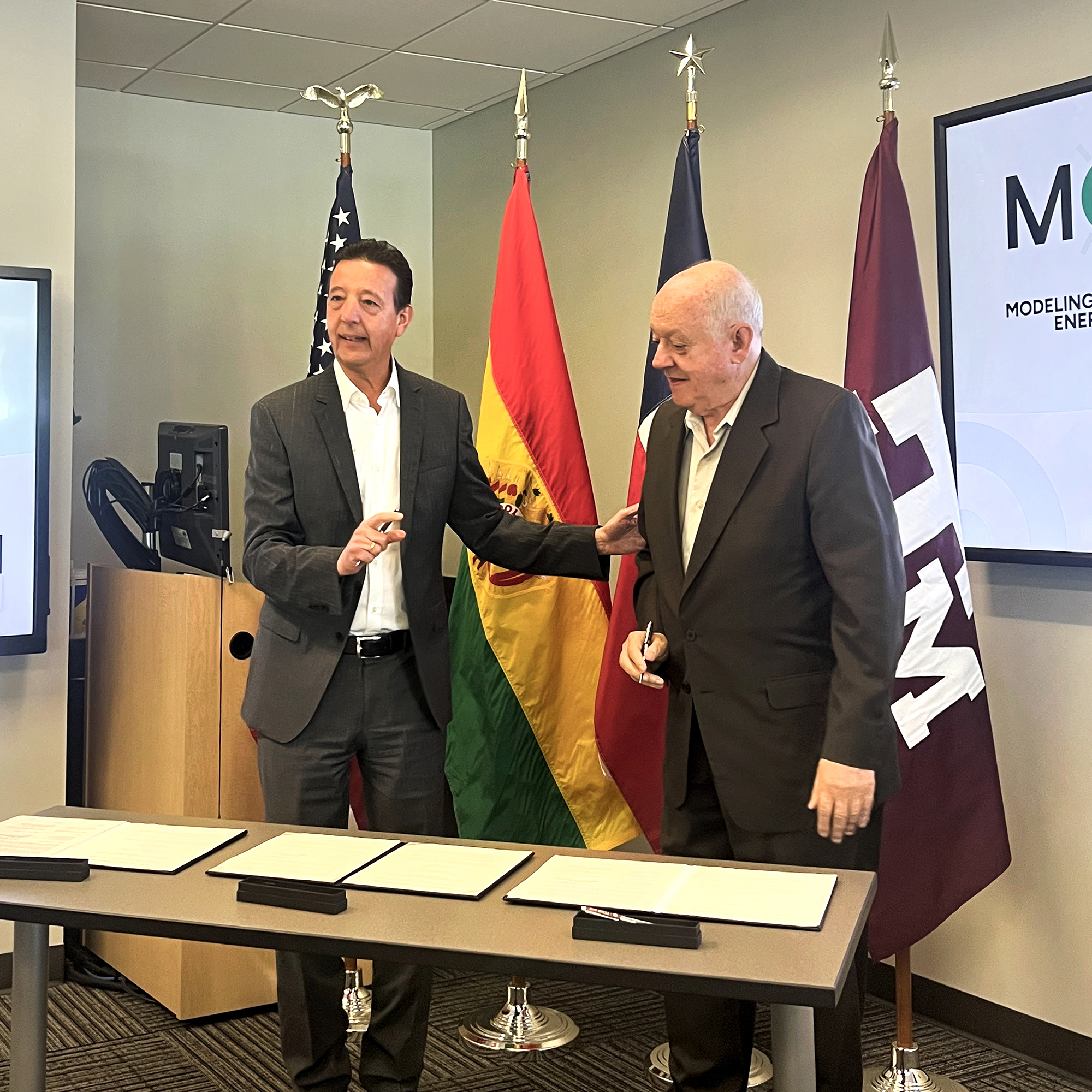
MOISES, led by Prof. Stratos Pistikopoulos, Distinguished Professor of Chemical Engineering, Director of the Texas A&M Energy Institute and Dow Chemical Chair; and Prof. Oscar Serrate, Dean of Engineering at UPSA, is pioneering a data-driven, model-based approach to address the complex challenges facing Bolivia’s energy sector. At its core, MOISES aims to develop a sophisticated energy system modeling tool designed to support decision-making and policy formulation. This integrated approach ensures a holistic representation of the energy system, encompassing factors such as energy supply, demand, infrastructure, and environmental impacts.
Key components of the model framework include:
- Energy Supply Module: Detailed representation of various energy resources, including fossil fuels, hydroelectricity, solar, wind, and biomass, considering factors like resource availability, production costs, and environmental constraints.
- Energy Demand Module: Analysis of energy consumption patterns across different sectors (residential, commercial, industrial, transportation) and development of demand forecasting models based on socioeconomic factors and energy efficiency measures.
- Infrastructure Module: Modeling of the electricity transmission and distribution network, as well as gas and liquid fuel pipelines, considering capacity expansion, network losses, and system reliability.
- Environmental Module: Integration of environmental impacts, including greenhouse gas emissions, air pollution, and water consumption, to assess the sustainability of different energy scenarios.
- Economic Module: Evaluation of economic costs and benefits of different energy policies and investments, considering factors such as energy prices, subsidies, and fiscal impacts.
A Tool for Decision-Making
The MOISES model aims to support a wide range of decision-making processes, including:
- Energy Planning: Identifying optimal energy mixes, investment priorities, and infrastructure development plans.
- Policy Analysis: Evaluating the impacts of different policy instruments, such as carbon pricing, renewable energy subsidies, and energy efficiency standards.
- Risk Assessment: Quantifying the risks associated with energy supply disruptions, price volatility, and climate change.
- Scenario Analysis: Exploring potential future energy scenarios under different assumptions about technological advancements, economic growth, and policy choices.
By providing a comprehensive and flexible modeling platform, MOISES aims to empower policymakers, energy planners, and investors to make informed decisions and navigate the complexities of the energy transition.
Replicability and Scalability
A critical aspect of the MOISES program is its focus on developing a replicable and scalable modeling framework. The goal is to create a tool that can be adapted to the specific conditions of other countries in the region and beyond. By sharing the model’s architecture, data requirements, and validation methodologies, MOISES seeks to foster knowledge transfer and capacity building in the energy sector.
Potential applications of the MOISES model in other countries include:
- Assessing the feasibility of renewable energy integration.
- Developing national energy efficiency action plans.
- Designing energy market reforms.
- Evaluating the impacts of climate change policies.
Through its focus on model development, knowledge sharing, and capacity building, the MOISES program has the potential to become a valuable resource for countries seeking to achieve a sustainable energy future.
Exchange Activities and Collaboration
A cornerstone of the MOISES program is the robust exchange between Texas A&M University and UPSA. This includes faculty and student exchanges, joint research projects, and workshops. These collaborative activities have fostered a deep understanding of the energy challenges facing Bolivia and have contributed significantly to the development of the MOISES model framework.
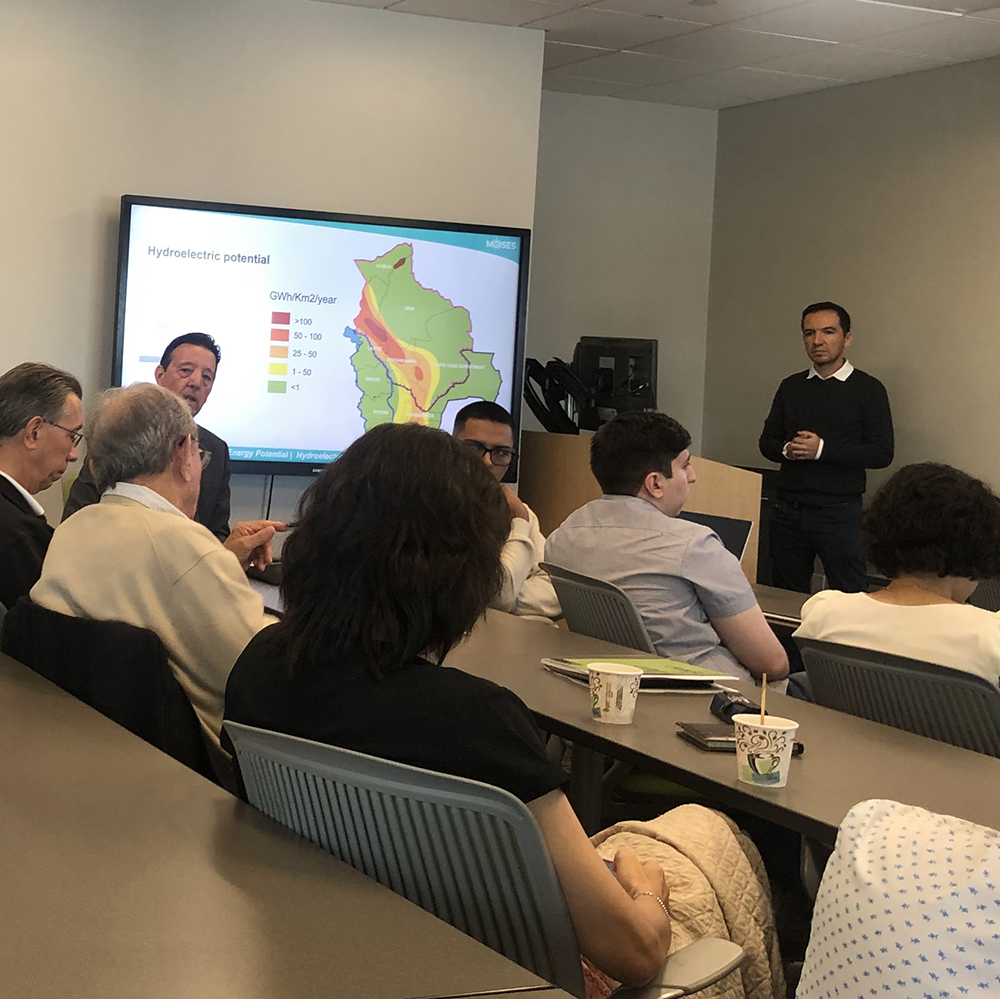

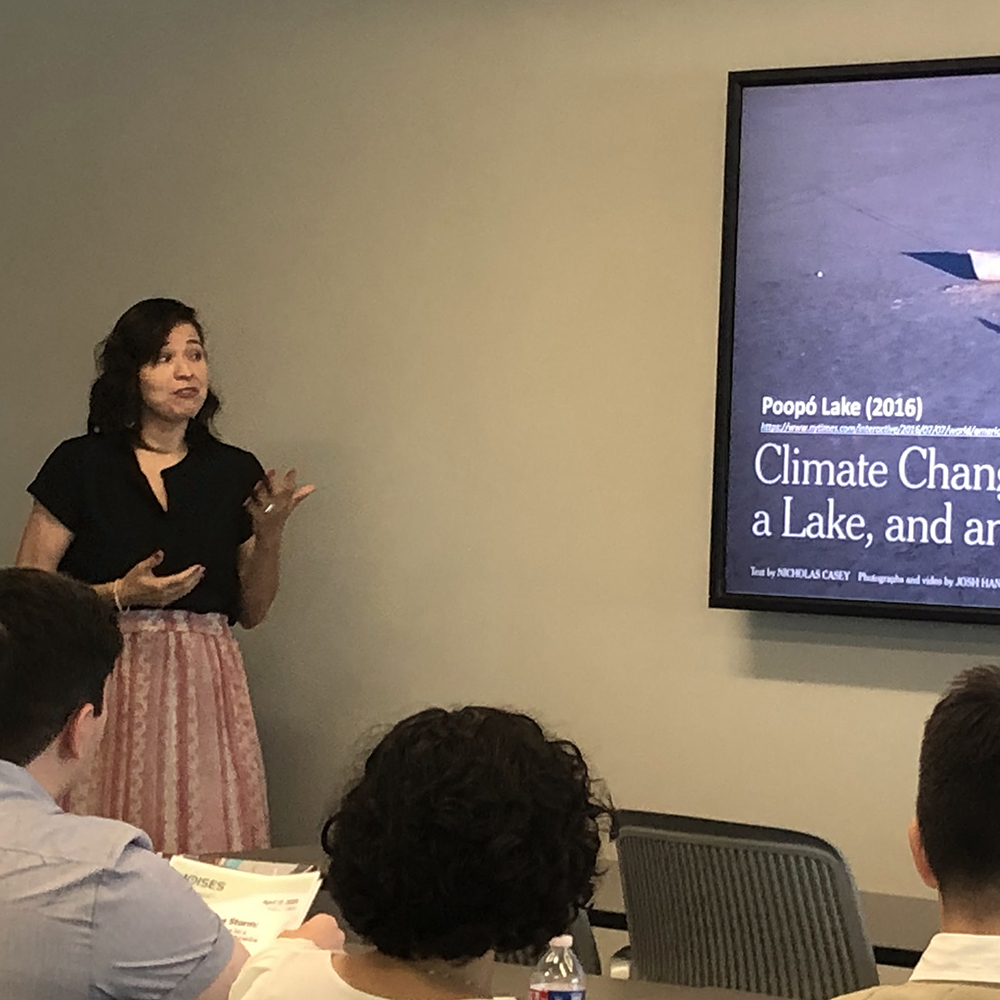
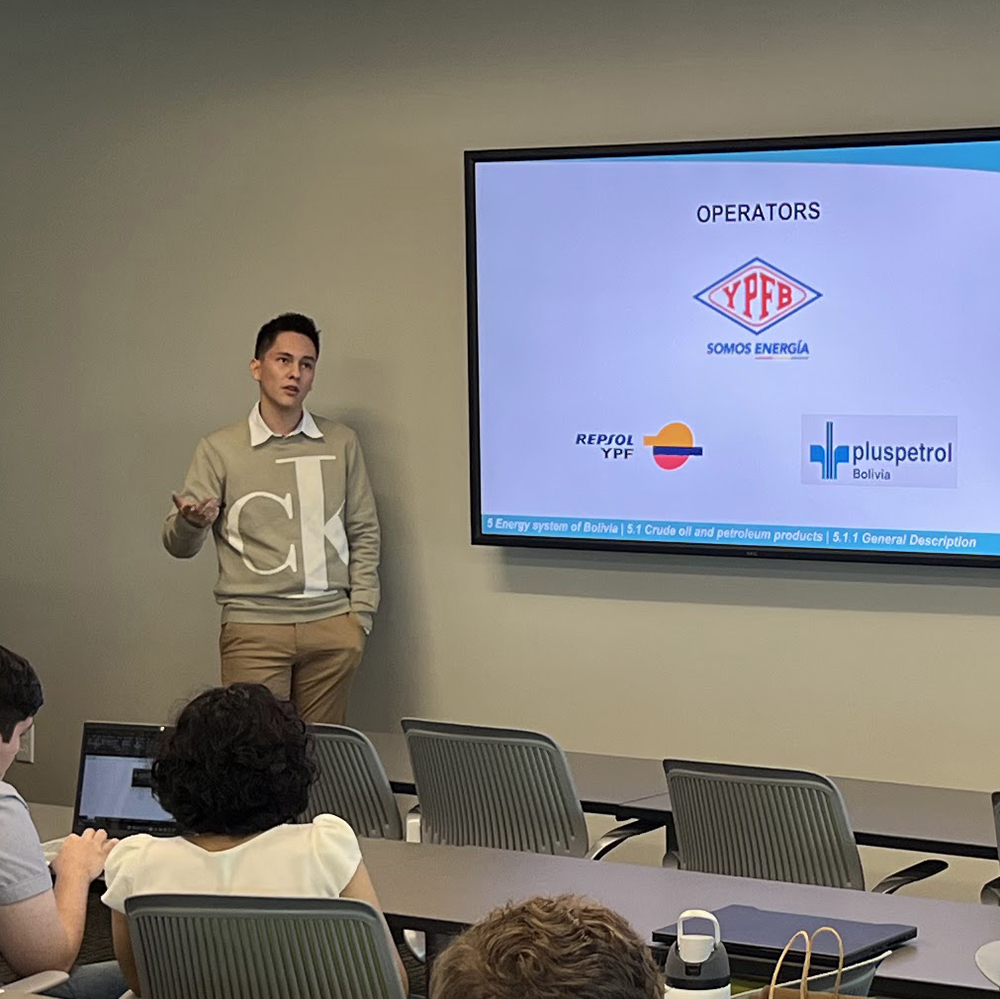
In recognition of the program’s potential and the strong partnership between the two institutions, Texas A&M Energy Institute and UPSA signed a Memorandum of Understanding (MOU) formalizing their commitment to long-term collaboration. This MOU outlines the framework for joint research, student exchange, and knowledge sharing.
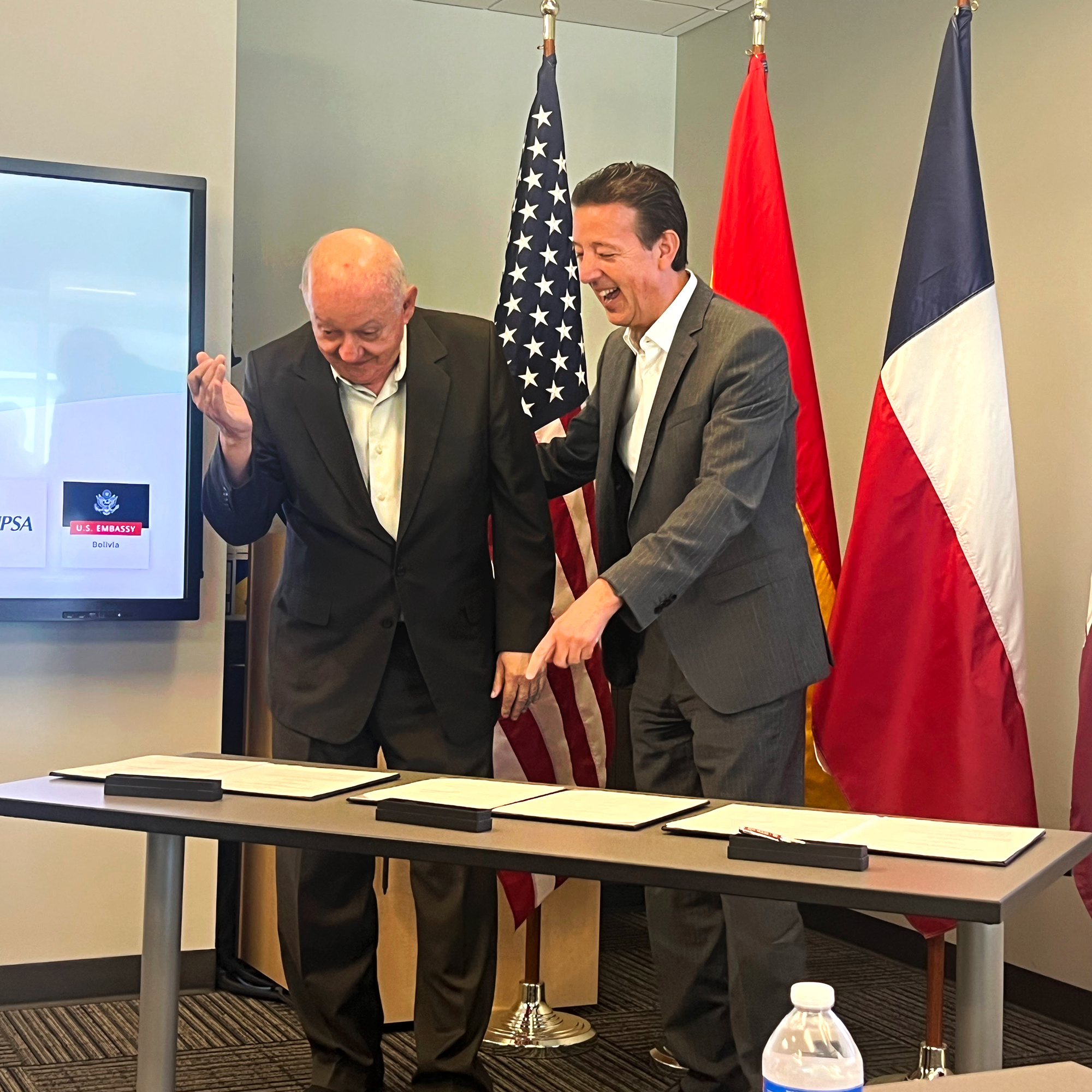
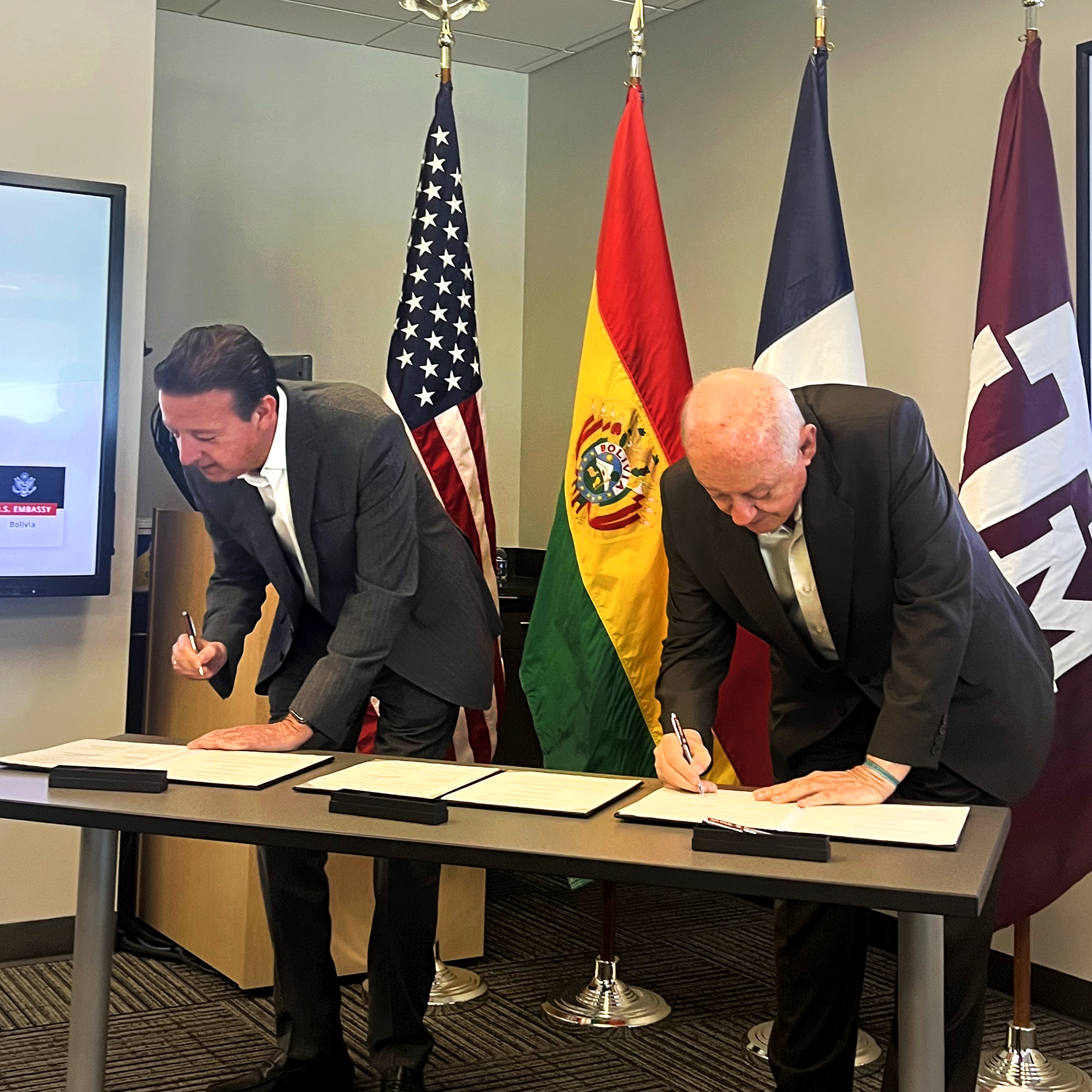
Building on the success of MOISES, the collaboration between Texas A&M and UPSA is expanding into other research areas, such as resource management, climate change adaptation, and sustainable agriculture. These complementary efforts aim to create a broader impact on the region’s development challenges.
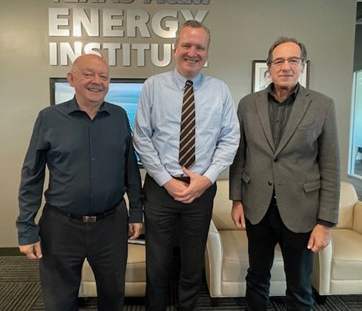
By combining advanced modeling capabilities, strong institutional partnerships, and a commitment to knowledge exchange, the MOISES program is poised to make a substantial contribution to Bolivia’s energy transition and serve as a model for other countries seeking to build a sustainable energy future.
Workshops
To disseminate the program’s findings and engage with a wider audience, MOISES organized two workshops, and a third is planned for October 2024.
On January 18, 2024, in Santa Cruz de la Sierra, Bolivia, a diverse group of energy experts, policymakers, and industry leaders convened at UPSA for a pivotal workshop focused on charting a course for Bolivia’s energy future. The event, co-organized by UPSA and the Texas A&M Energy Institute, aimed to foster collaboration, knowledge sharing, and the development of actionable strategies to address the nation’s complex energy challenges.
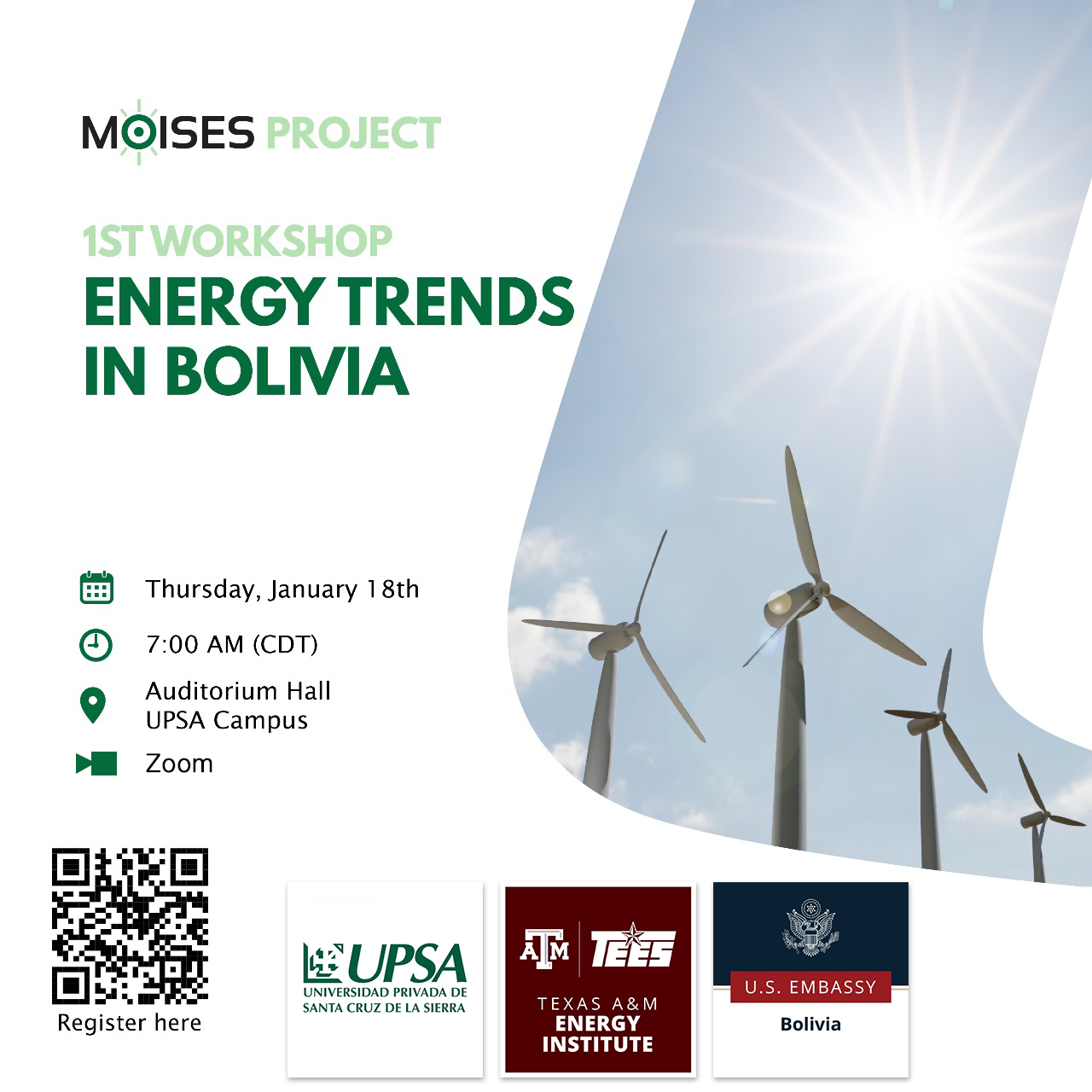
A Collaborative Gathering for Bolivia’s Energy Transition
The workshop commenced with opening remarks from Dr. Pappas, Assistant Director of the Texas A&M Energy Institute and co-PI in the MOISES Program, and Dr. Serrate, co-PI in MOISES, who extended warm welcomes to the attendees and underscored the significance of the gathering. Following this, Dr. Pappas provided an overview of the MOISES program, highlighting its objectives and the rationale behind the collaborative effort between UPSA and Texas A&M.
The subsequent plenary sessions delved into the intricacies of Bolivia’s energy landscape. Carlos Delius presented a comprehensive overview of the oil and gas sector, emphasizing both its current state and future prospects. Thierry Stroobants followed with an analysis of electricity production, highlighting the country’s hydropower potential and the growing importance of renewable energy sources. Teresa Morato expanded on the renewable energy theme, discussing the opportunities and challenges associated with ethanol, biomass, solar, wind, bioenergy, and geothermal technologies. Finally, Eduardo Paz shed light on the critical dimensions of energy reliability, availability, accessibility, and affordability, underscoring the need for a just and equitable energy transition.
The morning concluded with a series of parallel sessions designed to foster in-depth discussions on specific topics. Claudia Tinocco led a session on the economic challenges and opportunities presented by Bolivia’s energy transition. Claudia Gutierrez explored pathways for affordable energy and job creation within the sector. Nathalia Weber and Oscar Siles offered insights from neighboring countries in South America and beyond, showcasing successful models and lessons learned. Finally, Fernando Escobar emphasized the importance of building climate change resilience into energy industry planning.
The workshop culminated in a lively closing session moderated by Marcelo Lazo. Participants shared their key takeaways from the day’s discussions and engaged in a robust exchange of ideas. The event concluded with a call for continued collaboration and a commitment to working together to shape Bolivia’s energy future.
The workshop served as a valuable platform for knowledge sharing, networking, and identifying potential areas of cooperation. By bringing together a diverse group of stakeholders, the event fostered a rich dialogue on the critical issues facing Bolivia’s energy sector. The insights and recommendations generated during the workshop will undoubtedly inform the development of policies and strategies aimed at achieving a sustainable and prosperous energy future for the country.
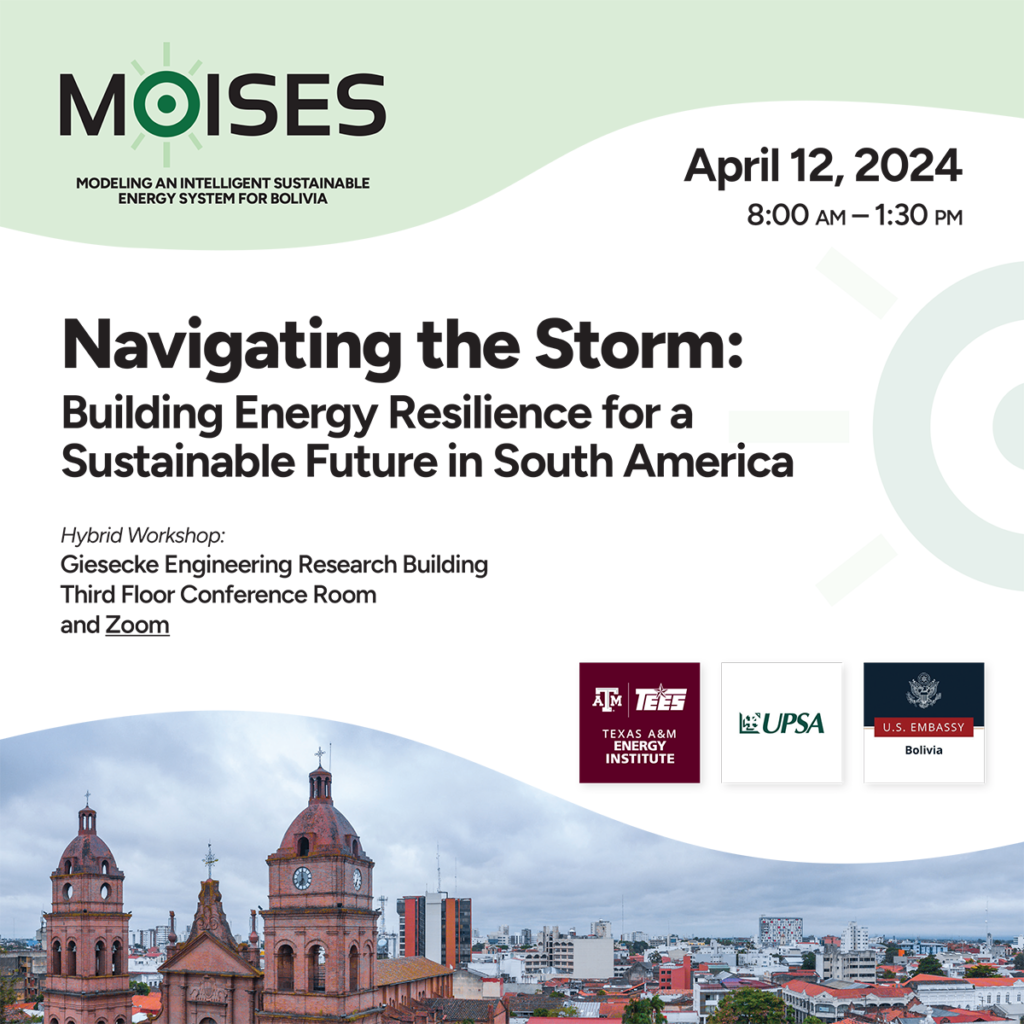
A Day of Insights and Collaboration
The Frederick E. Giesecke Engineering Research Building was abuzz with energy on April 12, 2024, as experts from academia, industry, and government gathered for the second workshop of the MOISES program. The aim was to chart a course towards a sustainable energy future for South America, a region grappling with the challenges of dwindling fossil fuel reserves and the imperative of climate action.
The morning commenced with a warm welcome from Prof. Pistikopoulos, PI of the MOISES Program, and Prof. Oscar Serrate. Their remarks underscored the critical importance of the MOISES program in addressing Bolivia’s energy challenges and fostering international collaboration.
The subsequent presentations delved into the complexities of the region’s energy landscape. Prof. Eduardo Gildin from Texas A&M University showcased the potential of data-driven simulations for decarbonizing the oil and gas industry, a sector still crucial for many South American economies. Prof. Gustavo R. S. Assi from the University of São Paulo painted a vision of interconnected energy systems, highlighting the need for integration across industries for Brazil’s sustainable transition.
The morning session concluded with a thought-provoking presentation by Dr. Christian Brannstrom on energy justice and the challenges faced by wind farms in Brazil’s northeastern region. His insights underscored the importance of considering social and environmental impacts alongside economic benefits in the pursuit of renewable energy.
The afternoon sessions expanded the focus to urban energy systems and national overviews. Heber Y. Parra Hernández from the Resilient Cities Network offered strategies for building resilient urban energy systems, a critical aspect of addressing the challenges of rapid urbanization in the region.
Texas A&M Energy Institute graduate students Inti Rodriguez Hernandez and Oteniel Epalanga provided comprehensive overviews of Venezuela’s energy landscape and Brazil’s successful transition to a sustainable energy matrix, respectively. These presentations offered valuable insights into the diverse energy realities of South American countries.
The workshop culminated in a lively discussion and reflections on the day’s presentations. Participants exchanged ideas, identified potential areas of collaboration, and expressed their commitment to working together to build a more sustainable energy future for South America.
As the workshop drew to a close, it became evident that the path to a sustainable energy future is complex and multifaceted. However, the collaborative spirit and shared commitment demonstrated by the participants offered hope for overcoming these challenges. The MOISES program, with its focus on modeling, data analysis, and international cooperation, emerged as a beacon of hope for a region seeking to navigate the storm of energy transition.



MOISES Program

Learn more about the Texas A&M Energy Institute’s MOISES program:
- News Articles
- Events
- First Workshop: Navigating the Storm: Building Energy Resilience for a Sustainable Future in South America
- Second Workshop: Navigating the Storm: Building Energy Resilience for a Sustainable Future in South America
- Third Workshop: Navigating the Storm: Building Energy Resilience for a Sustainable Future in South America
